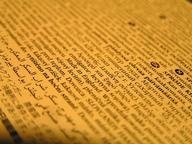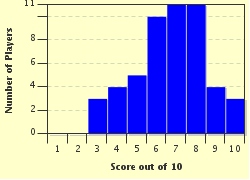Quiz Answer Key and Fun Facts
1. "You scratch my back and I'll scratch yours." In the spirit of cooperation, people often do things for EACH OTHER and ONE ANOTHER. To which class do these two PRONOUNS belong?
2. The untutored often make the mistake of adding an apostrophe to this singular possessive pronoun. What is the pronoun?
3. I'm going to ask you a series of questions just to make sure I get all the relevant information, ma'am. Which kind of determiner is "which"?
4. How is "which" used in the following sentence? "The song which I was hoping I'd never hear again is always playing in my favorite restaurant!"
5. If you need or want to be vague, choose this class of pronoun, which includes "some" and "somebody."
6. These pronouns refer to specific people and often serve as a sentence's subject. You would sound very silly indeed if you used anything but "I" to talk about yourself!
7. You subtly try to point out your new crush to your friend in the lunchroom without being too expressive. You whisper, "It's that guy!" when he walks by and hope he didn't hear you. What class of determiner served your purpose?
8. In which sentence does a determiner appear?
9. Do yourself a favor and correctly identify the list of reflexive pronouns from the choices that follow:
10. The owl has many relatives in the avian world, so maybe that's why it likes to utter this relative pronoun so frequently!
Source: Author
Treenage
This quiz was reviewed by FunTrivia editor
ponycargirl before going online.
Any errors found in FunTrivia content are routinely corrected through our feedback system.


